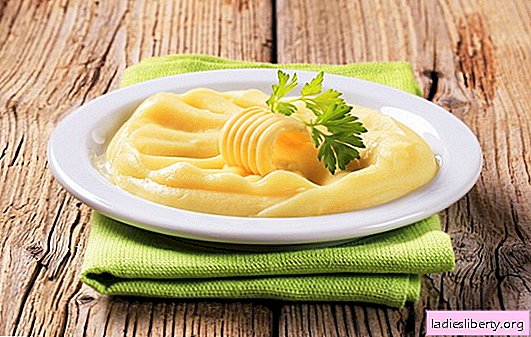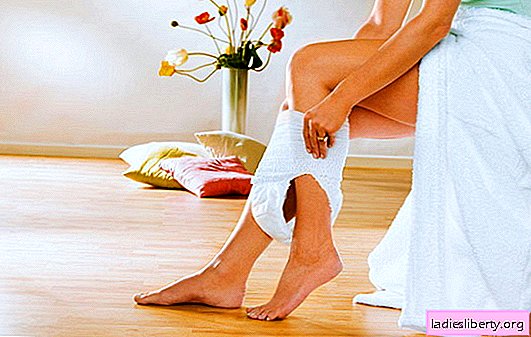
After diseases of the musculoskeletal system, pathologies of the gastrointestinal tract are most common. According to statistics, every second inhabitant of the planet suffers from problems with the gastrointestinal tract.
In the structure of all diseases, the palm is held by problems with the stomach and esophagus. One of the most common pathologies is called esophagitis.
Esophagitis is a degenerative lesion of the mucous membrane of the esophagus of an inflammatory nature. This is not a harmless pathology, but a dangerous disease that significantly reduces the quality of life and increases the risk of esophageal cancer.
In order not to become a victim of this silent pest, it is necessary to arm yourself with knowledge.
What are the causes of esophagitis
There are some of the most common causes for the development of esophagitis. Among them:
• Reflux (gastroesophageal). It is a common phenomenon that everyone has met. The essence of this phenomenon is to throw the contents of the stomach into the esophagus. The sources of the problem can be very different, most often - overeating. The stomach stretches excessively, the sphincter, which blocks access to the esophagus, relaxes, and gastric juice with particles of semi-digested food are thrown back into the esophagus, causing heartburn and discomfort.
• Hereditary factor. It cannot be written off. The disease itself is not transmitted, but the structural features of the gastrointestinal tract are inherited, so some people experience reflux more often than others. It is proved that if the father or mother suffers from esophagitis, with a probability of 15% the offspring will suffer the same disease, if grandparents were ill, the probability is lower, only 8%.
• Infectious lesions of the stomach and esophagus. We can talk not only about viruses, but also fungi, bacteria, etc. The most common infection occurs in people who use immunosuppressants, in patients with AIDS, etc.
• Chemical burns of the esophagus. They are extremely rare. Usually we are talking about suicide attempts.
• Physical (mechanical) injuries of the esophagus. They happen when you try to swallow too large a piece of food or when introducing a probe (FGDS).
• Violations of the liver, gall bladder. In this case, esophagitis is caused by digestive disorders.
• Specific syndromes (achalasia, hernia, etc.). Provoke inflammation of the esophagus.
There are many causes of esophagitis. It is almost impossible to figure it out on your own, and even more so to recover. A doctor's consultation is required.
The first symptoms of esophagitis
Esophagitis is often characterized by specific symptoms, however, distinguishing this disease from pathologies of the stomach is not always easy. To do this, resort to instrumental examination methods. Among the signs of esophagitis:
• Problems with swallowing. A patient suffering from esophagitis has difficulty swallowing food and saliva. This is due to a violation of the function of the muscles of the esophagus.
• Sensation of a lump in the throat, feeling of heaviness all the way from the esophagus to the stomach. One of the first symptoms of esophagitis.
• Heartburn, especially at night.
• Sour taste in the mouth (the symptom is nonspecific, it can also occur in case of gastritis and stomach ulcers).
• Throwing food particles and stomach acid into the upper esophagus. This is an extremely dangerous symptom. If gastroesophageal reflux occurs at night, there is a high risk of choking on acid contents.
• Pain syndrome. The pain can be localized both in the stomach or esophagus, and in the throat, where the esophagus itself originates.
• ulceration of the mucous membranes of the oral cavity.
• Digestive disorders, nausea, vomiting.
• Pain in the chest area. Mistakenly mistaken for heartache. Discomfort gives back, throat. In this case, we have to talk about problems with the esophagus.
• Belching.
• Sour breath.
The signs of esophagitis are specific enough to reliably diagnose the disease, but it is not always so simple: the manifestations of the disease, their intensity and nature vary from patient to patient.
Diagnosis of esophagitis
Diagnosis of esophagitis begins with the choice of a specialist. Gastrointestinal tract problems are handled by gastroenterologists. However, first of all, it is recommended to look at the therapist. He will conduct an initial diagnosis and issue a referral for a consultation with a profile doctor.
At the initial consultation, the gastroenterologist asks questions regarding the patient's condition. Having recorded all the complaints, the doctor makes an initial picture of the pathology and makes an approximate diagnosis. To confirm or refute the hypothesis of the doctor, a number of instrumental diagnostic methods are prescribed.
The main way to reliably detect esophagitis is through gastroscopy (well known as HDF). FGDS allows the doctor to visualize the walls of the esophagus and stomach. However, not always and not everyone can carry out this procedure. Despite the high information content, there are a lot of contraindications. In this case, a contrast radiography with barium is prescribed.
Diagnosis does not present big problems, just one or two studies are enough.
Esophagitis Treatment
The treatment of esophagitis presents some difficulties. It is important to identify the source of the problem, but not always easy to do. Curation of pathology, mainly medication. Only in the most severe, advanced cases, surgical intervention is recommended. Usually, the following medications are sufficient:
• Medicines that suppress the production of gastric juice (Rutacid, Gastal, Almagel, etc.). It is important to keep in mind that for patients suffering from gastritis with low acidity, such treatment is categorically not suitable.
• Anti-inflammatory drugs. They are prescribed with caution, since anti-inflammatory in themselves have an irritating effect.
• Antibacterial drugs. They are prescribed in cases where the source of the problem is an infectious lesion. It is also possible the appointment of antifungal drugs. It all depends on the type of infectious agent.
• Analgesics. Help eliminate pain.
Mechanical injuries of the esophagus after FGDS require temporary administration of drugs that block the production of gastric juice.
In general, the treatment of esophagitis is selected based on the characteristics of the process.
Features of the diet for esophagitis
A major role in the treatment is played by proper nutrition. It is important to follow a diet. What products are not recommended?
• Fatty foods.
• Fried food.
• Spicy.
• Salty.
• Coffee.
• Sour foods (citrus fruits, etc.).
These main categories include fatty meats, fast food, pickles, smoked meats, etc.
It is recommended to use as much as possible:
• Vegetables, fruits, preferably steamed or by baking. Why so? Because the coarse fibers of raw vegetables and fruits will irritate an already suffering esophagus.
• Cash. It is recommended to give preference to semolina, oatmeal, millet and rice porridge. They contain a large amount of gluten, which envelops the mucous membranes of the esophagus and stomach, beneficially affecting digestion.
• Dairy products.
All dishes are recommended to be used in a soft, or even wiped form. So the esophagus will not be injured, besides this way of eating food makes it easier to digest.
Esophagitis Prevention
Prevention of esophagitis is aimed at "early" elimination of adverse factors that cause esophagitis. Recommended:
• Eat small meals and often so as not to overload the gastrointestinal tract.
• Follow a diet.
• Do not overeat. This is a direct path to the development of esophagitis.
Besides:
• It is necessary to treat all inflammatory diseases on time and sanitize the infectious foci.
• You need to carefully monitor your own health. At the first suspicion of a pathology, you should contact a doctor (gastroenterologist).
Esophagitis is a common disease. In one way or another, everyone at least once suffered from him. But if the disease is severe, accompanied by constant symptoms, you can not do without medical assistance.
Fortunately, modern medicine allows one hundred percent accuracy to detect both the disease itself and the sources of its development, and to start effective treatment in time.











